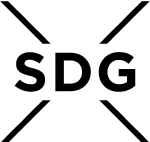Incidents of disease and access to preventive and curative healthcare varies significantly for people with different identities. As an illustration, racial identity is a significant driver of access to health – with a lot of research on how black Americans as well as other minority groups having significantly higher disease burdens and significantly poorer access to healthcare as compared to white Americans. Similarly, in a research paper by Sana Contractor and Tejal Barai Jaitly, there is a clear evidence of lower density of health facilities in Muslim-majority areas in India. Most of this exclusion is not fully understood because it is only very recently that these markers of identity have been identified as required attributes within healthcare documentation in several countries.
This panel will address important questions
- How equitable are the current healthcare systems around the globe especially in the Global South?
- Which identity groups have diminished access to and biased experiences within these systems?
- What are some of the structural reasons for this exclusion?
- What measures can be taken to systematically address this within the SDG framework?
- What role do funders, policymakers, researchers, private sector, public sector, and civil society actors need to play?
Moderator for the session: Erin Barringer (Partner and Regional Director for the Americas, Dalberg Advisors)
Speakers:
- Dr. Aqsa Shaikh (Associate professor, Department of Community Medicine, Hamdard Institute of Medical Science & Research)
- Professor Sanghamitra Sheel Acharya (Professor and Chairperson, Centre of Social Medicine and Community Health, Jawaharlal Nehru University)

